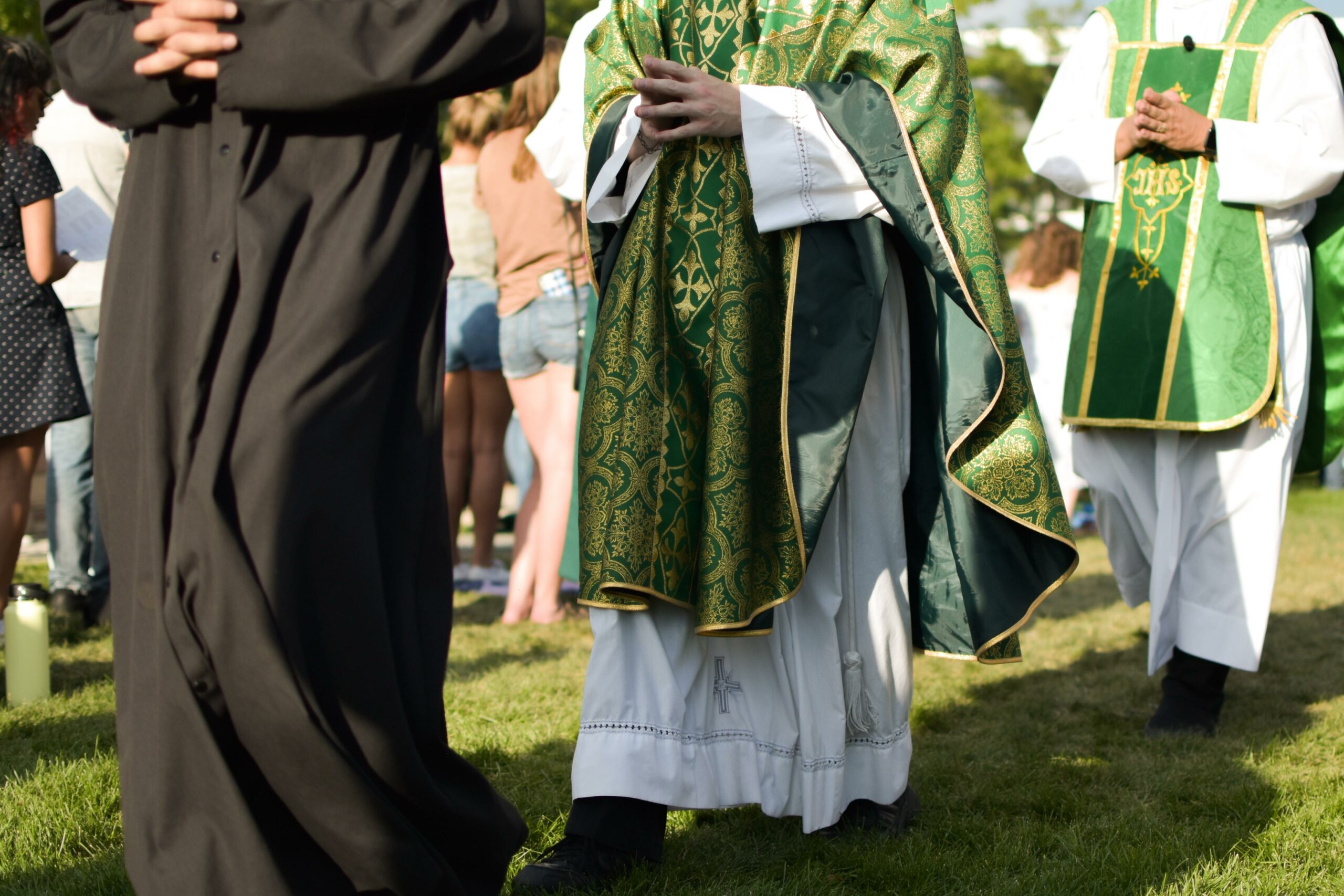Are you ready to embark on a journey through the theological tapestry of the eucharist? If you have ever found yourself captivated by the sacred significance of this ritual, then you are in for a treat. In this article, we will dive deep into the theological concepts surrounding the eucharist, unraveling its historical context, scriptural foundations, and diverse interpretations. Brace yourself for an exploration that will shed new light on this central sacrament, fostering a richer understanding and appreciation of its theological implications within various Christian traditions.

Theological Concepts of the Eucharist
In the rich tapestry of Christian theology, few concepts hold as much significance as the Eucharist. This sacred ritual, also known as the Lord’s Supper or Holy Communion, has a profound impact on the faithful, serving as a source of spiritual nourishment and a symbol of unity within the Church. The theological concepts surrounding the Eucharist delve into its deep historical and scriptural foundations, exploring its diverse interpretations within different Christian traditions. So, let’s embark on a journey of discovery as we explore the theological concepts of the Eucharist and its sacred significance.
The Transformative Power of the Eucharist
At the heart of the Eucharist lies a transformative power that sets it apart from other rituals. For Catholics, the belief in transubstantiation asserts that the bread and wine used in the Eucharistic celebration become the actual body and blood of Jesus Christ. This concept, rooted in the words of Jesus during the Last Supper, instills a sense of awe and reverence among believers, who see in the Eucharist a tangible means of encountering the divine. The theological concepts of the Eucharist highlight how this sacrament has the potential to transform and sanctify the lives of the faithful, offering a profound connection with Christ and fostering spiritual growth.
“The Eucharist, as the actual presence of Christ, represents a sacred moment where believers can experience God’s grace and find nourishment for their spiritual journey.”
Historical and Scriptural Foundations
To truly understand the theological concepts of the Eucharist, we must explore its historical and scriptural foundations. The accounts of Jesus’ institution of this sacrament in the Synoptic Gospels form the bedrock of Eucharistic theology. The Gospel of Mark recounts Jesus sharing bread and wine with his disciples, instructing them to do the same in remembrance of him. These profound words set in motion a ritual that would become central to Christian worship. The concept of the Eucharist as a commemoration of Jesus’ Last Supper reflects a deeply rooted tradition within the early Christian community, showcasing the Eucharist’s historical significance.
“The Eucharistic ritual finds its origins in the Last Supper, creating a tangible connection between believers and the foundational moments of Christ’s ministry.”
Unity and Diversity in Eucharistic Theology
One remarkable aspect of the Eucharistic theology is the diversity of interpretations within different Christian traditions. While Roman Catholic theology focuses on the recitation of the words of institution as the pivotal moment of transubstantiation, Eastern theology emphasizes the invocation of the Holy Spirit upon the elements. These divergent approaches reveal the complexity and depth of Eucharistic theology, highlighting the unity of the faith while respecting the distinct theological perspectives held within various Christian communities.
“The Eucharistic theology embraces diverse interpretations, fostering unity within the diversity of Christian traditions.”
Sacrament of Divine Presence and Unity
Embedded within the theological concepts of the Eucharist is the understanding that this sacrament represents the real presence of Christ and the unity of believers. As participants partake in the Eucharistic ritual, they enter into a profound moment of communion with Christ and with fellow Christians. The Eucharist, in its essence, symbolizes both a vertical connection with the divine and a horizontal connection with the body of Christ—the Church. Through this sacrament, believers experience a profound unity with Christ and with each other, reinforcing the theological concept of the Eucharist as a transformative and unifying force within the Christian faith.
“In the Eucharist, we encounter both the real presence of Christ and the unity of the Church, fostering a deep sense of spiritual communion.”
The Eucharist as an Act of Worship and Sanctification
Within the theological concepts of the Eucharist, we find a recognition of its central role in Christian worship and sanctification. The Eucharist is considered the Church’s chief act of worship, a sacred moment where believers gather to offer thanksgiving and praise to God. The reception of the Eucharist, with its transformative power, serves as a means of sanctification, nourishing the faithful with the grace of God. Through the Eucharistic celebration, believers are invited to place themselves in the presence of the Divine, seeking spiritual growth and holiness.
“The Eucharist stands as a sacred act of worship and a means by which believers are sanctified and drawn closer to God.”
In conclusion, the theological concepts of the Eucharist offer a profound exploration of its sacred significance within the Christian faith. Through historical and scriptural foundations, diverse interpretations, and the recognition of the Eucharist as a transformative and unifying force, believers gain a deeper understanding of this central sacrament. The Eucharistic theology invites us to partake in a ritual that transcends time, connecting us with the foundational moments of Christ’s ministry and offering a tangible encounter with the Divine. So, let us embrace the theological concepts of the Eucharist and immerse ourselves in the rich tapestry of its sacred significance.
[theological concepts of the eucharist]
The Eucharist is a sacred sacrament that holds significant importance in the Catholic faith. If you’re curious about the crucial and profound facts surrounding this heartwarming tradition, then you’ll definitely want to check out these important facts about the Eucharist. Prepare to be awestruck by the deep spiritual meaning and historical context behind this cherished rite. Click here to explore the enlightening details: important facts about the eucharist. Allow yourself to be immersed in the richness of this divine ceremony and gain a deeper understanding of its profound significance.
FAQ
Question 1
What is eucharistic theology?
Answer 1
Eucharistic theology is a branch of Christian theology that focuses on the doctrines concerning the Holy Eucharist. It explores the profound theological and spiritual dimensions of the Eucharist as a central sacrament in Christianity, highlighting its significance in the life of believers and the unity of the Church.
Question 2
What is the Eucharist?
Answer 2
The Eucharist, also known as the Lord’s Supper, is a ritual commemoration of Jesus’ Last Supper with his disciples. In the celebration of the Eucharist, bread and wine are believed to become the Body and Blood of Jesus Christ through the power of the Holy Spirit and the instrumentality of the priest.
Question 3
How do different churches interpret the Eucharist?
Answer 3
Different churches have different theologies and interpretations of the Eucharist. In the Catholic Church, the Communion bread and wine are believed to become the actual body and blood of Jesus. Each Christian tradition has unique perspectives on the nature and significance of the Eucharist.
Question 4
What is the theological significance of the Eucharist?
Answer 4
The Eucharist holds great theological significance for Christians. It symbolizes the unity of believers with Christ and with each other. Through the Eucharist, believers partake in the body and blood of Christ, experiencing spiritual nourishment, transformation, and sanctification.
Question 5
What is the historical and scriptural foundation of the Eucharist?
Answer 5
The concept of the Eucharist is based on the accounts of Jesus’ institution of the sacrament in the Synoptic Gospels. It has biblical, patristic, and theological foundations. The Eucharist is deeply integrated into the life of the Church as its chief act of worship and the pre-eminent means by which the lives of the faithful are sanctified.
- Crypto Quotes’ Red Flags: Avoid Costly Mistakes - June 30, 2025
- Unlock Inspirational Crypto Quotes: Future Predictions - June 30, 2025
- Famous Bitcoin Quotes: A Deep Dive into Crypto’s History - June 30, 2025
















